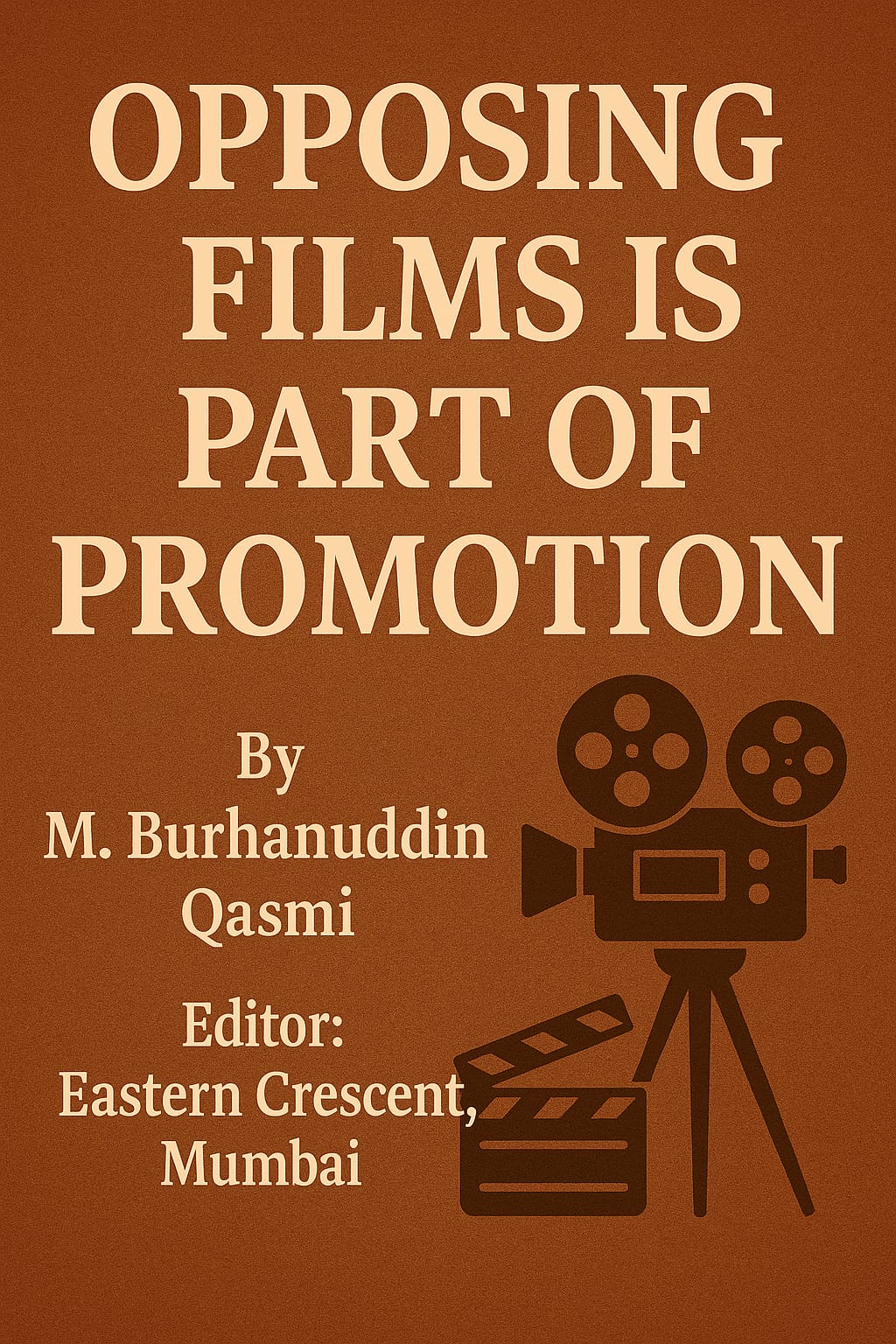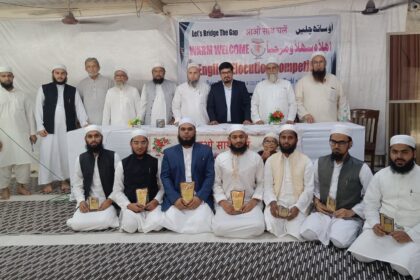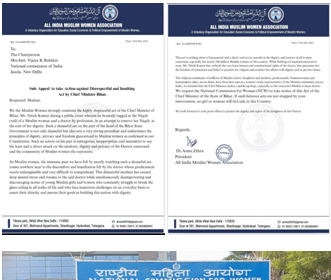Opposing Films is Part of Promotion
By: M. Burhanuddin Qasmi
Editor: Eastern Crescent, Mumbai
A curious phenomenon has emerged across social media platforms recently. Young ulama and religious voices have launched relentless campaigns against a particular film, flooding WhatsApp groups and timelines with warnings about its alleged anti-Muslim content. Curiously, few seem to have actually viewed the offending material – and one hopes respected ulama wouldn’t lower themselves to watch such films at all.
This outrage plays perfectly into filmmakers’ hands. Modern cinema thrives on controversy, with producers often paying critics to condemn their work. Whether praised or attacked, the resulting buzz serves their purpose equally well. In today’s attention economy, any publicity – even negative – translates to box office success.
Consider the marketplace analogy: shopkeepers quickly remove ignored merchandise, but items that spark debate fly off shelves. By vocally opposing films, we become unwitting promoters. India’s film history shows most explicitly anti-Muslim productions flopped commercially. Yet filmmakers keep producing them, willing to lose money to fuel social divisions that serve political agendas.

The most potent response? Complete silence. Not reviews. Not boycotts. Not lawsuits. When we warn people “Don’t watch this anti-Muslim film,” we plant dangerous curiosity. Those who normally ignore cinema suddenly want to see what the fuss is about. Our good intentions become marketing tools for the very content we oppose.
True cultural resistance begins with indifference. Films that receive no attention, no reactions, no oxygen – these fade into obscurity naturally. Sometimes, the loudest protest comes through absolute silence. When hateful content meets unanimous disregard, it withers away, leaving its creators shouting into the void.
The choice is yours: will you keep amplifying messages you claim to oppose, or starve them of the attention they crave? History shows that in the battle of ideas, strategic silence often speaks louder than any protest.















Hey very nice blog!! Guy .. Beautiful .. Wonderful .. I’ll bookmark your web site and take the feeds also?KI’m happy to find so many useful info here within the post, we need develop more techniques on this regard, thank you for sharing. . . . . .
Thanks so much for providing individuals with remarkably special possiblity to read from this website. It is often very pleasing and as well , packed with a lot of fun for me personally and my office mates to visit your blog at a minimum 3 times in 7 days to study the newest secrets you will have. And lastly, I’m just actually contented for the striking thoughts you serve. Selected 3 tips in this article are clearly the most suitable we have all had.
Great ?V I should certainly pronounce, impressed with your web site. I had no trouble navigating through all the tabs and related info ended up being truly simple to do to access. I recently found what I hoped for before you know it at all. Quite unusual. Is likely to appreciate it for those who add forums or something, web site theme . a tones way for your client to communicate. Excellent task..
Would love to incessantly get updated great web blog! .
Yay google is my queen assisted me to find this outstanding internet site! .
I relish, result in I found exactly what I used to be looking for. You’ve ended my four day lengthy hunt! God Bless you man. Have a nice day. Bye
Undeniably believe that which you said. Your favorite reason appeared to be on the net the easiest thing to be aware of. I say to you, I definitely get irked while people consider worries that they plainly do not know about. You managed to hit the nail upon the top and defined out the whole thing without having side-effects , people can take a signal. Will likely be back to get more. Thanks
Having read this I thought it was very informative. I appreciate you taking the time and effort to put this article together. I once again find myself spending way to much time both reading and commenting. But so what, it was still worth it!